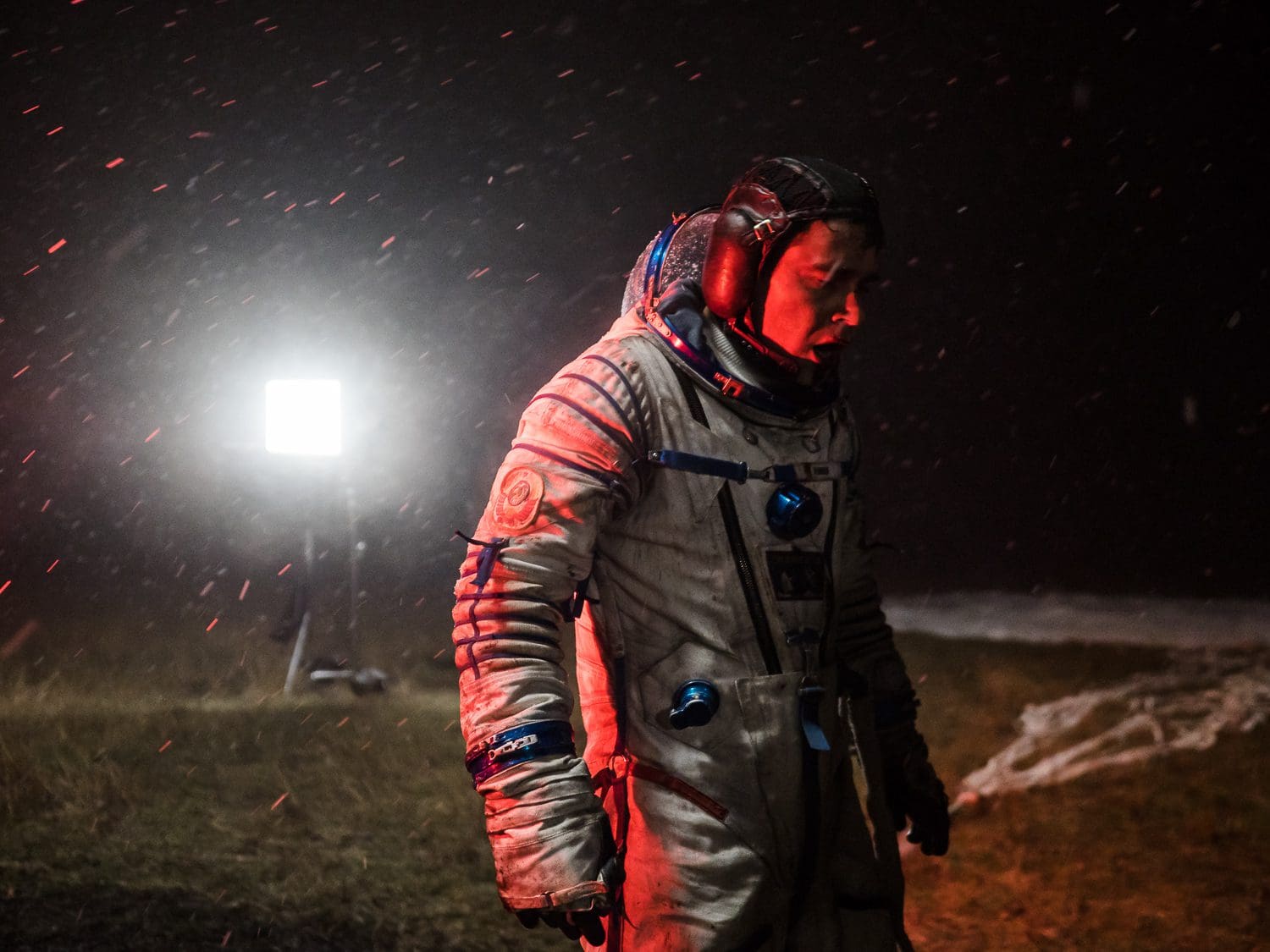
Back when Alien 3 was going through development hell, there were tons of different ideas of what it would be. Vincent Ward, the first director attached to project, wanted to take the xenomorphs to a wooden planet for an artsy take on Alien and there was even an early draft, before David Fincher came on as director, that had the aliens coming to Earth. That second draft about xenomorphs finally making their way to Earth actually had a good chance of being the final script, as there was actually a small teaser trailer created around this idea and it actually got fans pretty excited. Alas, like so many other ideas during Alien 3’s development, it got scrapped.
However, the new sci-fi horror flick from IFC Films, Sputnik, not only gives off immense Alien vibes, but is sort like that scrapped idea coming to life. In the film, a young psychiatrist named Tatyana (Oksana Akinshina) is recruited for a confidential mission for the Russian military led by Colonel Semiradov (Fedor Bondarchuk) to observe an astronaut named Konstantin (Pyotr Fyodorov). After embarking on a mission in space, Konstantin was the only surviving member—but he did not come back alone. He has some kind of alien life-form inside him that comes out at night when Konstantin is unconscious. Thus, Tatyana must figure out new information about the alien before it can leave Konstantin completely or be utilized in some plans for corruption that could hinder her findings.
Just the fact that the film follows a man carrying an alien inside of him makes Sputnik’s Alien inspirations clear, but it’s far from being a rip-off, as it focuses on a much more human narrative about control and the cost of scientific progress. For most of the film, we actually don’t see the alien, as it only comes out at night. So, there ends up being more time dedicated to Tatyana talking to Konstantin as she attempts to figure out how much of a grip the alien has on him. It’s a great premise that works as an excellent, slow burn, tension-filled ride as it makes knowledge the key resource and every new detail more important than the last. The big thrills and moments of intrigue come in the form of what we learn about the alien–around which the film builds some awesome lore–and it brings out people’s true intentions and their own knowledge of what’s really happening. Not to mention, it makes the moments where the alien actually comes out at night much more impactful.
Sputnik’s alien looks awesome and proves to be an underrated deadly threat as it grows throughout the film. The alien’s look is kind of a mix between the alien in Life, that worm creature at the beginning of Prometheus, and the Lovecraftian creatures we just saw in the premiere of Lovecraft Country. It has a sort of child-like ignorance as it attempts to understand its surroundings, but it slowly rips away as we witness it rip people limb from limb. The film definitely contains the kind of gory kills that’ll please any horror fan and they are tastefully shot in a way that’s not super overbearing for more squeamish viewers—except maybe the last one. Hell, it’s even just gross to watch the alien come out of Konstantin’s mouth. The alien is made even more intriguing with what we learn about how it’s utilizing Konstantin’s body, their connection, and how it takes feeding on fear to horrifying new levels. The alien is also made even more of a terrifying threat with how it adapts and grows, but never fully changes its look.
However, Sputnik isn’t necessarily about the alien, but rather what Tatyana discovers about her co-workers, her task, and the symbiotic connection the alien has with Konstantin. As Tatyana makes some shocking discoveries about the alien, she makes equally shocking discoveries about the military’s intentions as well as what Konstantin actually knows about his condition. There’s one moment in particular where we find out how the alien is staying alive and finding nutrition that’s incredibly disturbing and speaks to the film’s themes about the cost of scientific progress.
The film goes through two big debates, as there’s some major conflict between Tatyana and the military heads around her about whether the alien is more important than the lives of Konstantin and the lives of the people it feeds on as well as if Konstantin and the alien have become one cohesive hivemind and who’s in control. These are definitely familiar genre-specific themes, especially in the Alien series, but they are made fresh through the great direction from Egor Abramenko, in his feature directorial debut, and some strong writing from Oleg Malovichko and Andrei Zolotarev.
The film definitely maintains its more human focus very well, as it’s hard not to find yourself hooked on every new detail that adds another layer to the growing character dynamics. Tatyana has a surprisingly emotional arc that’s made even more impactful through Akinshina’s confident and capable performance. Even Fyodorov’s performance elevates the character, as we learn about what Konstantin’s had to give up in order to be the heroic astronaut he believes he’s become. All of this great human storytelling is backed by a perfectly dark and secluded atmosphere and, oddly enough, the film taking place in Russia and with a Russian military gives it this distinct intensity that’s very effective in creating dire situations and an overwhelming element of secrecy.
Sputnik is truly Arrival meets Alien, meets every awesome element of the genre, making it a triple-A sci-fi horror threat that manages to hit its own unique strides through strong human storytelling and intriguing alien lore. If you’re a major fan of the Alien franchise, and even maybe wanted to see that Earth-based version of Alien 3 come to life, then Sputnik is a definite must watch.

